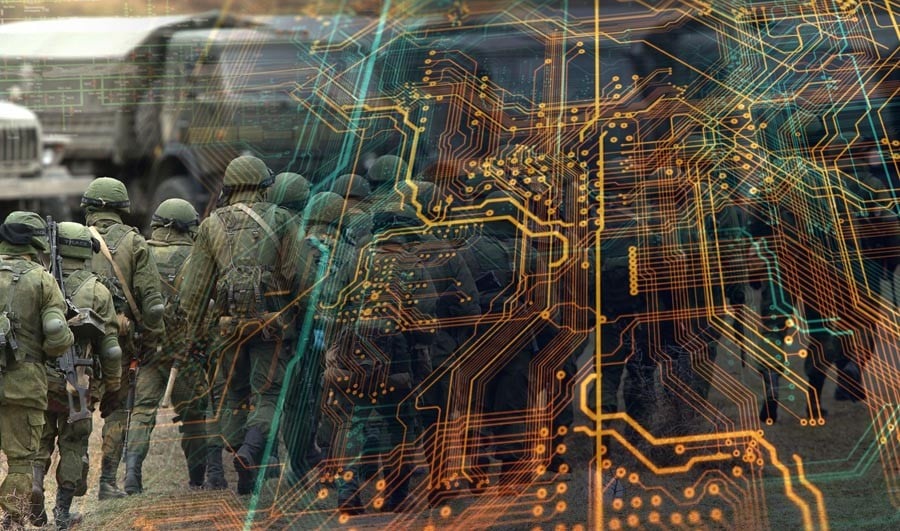
Hybrid war is the latest buzzword in the corridors of power. Is Pakistan really in the throes of a fifth generation war?

Political pundits around the globe see hybrid warfare as a distinct 21st century phenomenon in terms of the anticipated frequency of the conflict in the century than previously. The warfare is not new. Frank G. Hoffman traces the origin of hybrid conflict back to 431 BCE when Sparta went to war with Athens in the famous Peloponnesian War, which historian Thucydides wrote firsthand in his account titled The History of the Peloponnesian War. The warfare remained in vogue during 20th century. Hybrid war is the latest buzzword in the corridors of power in Pakistan.
Hybrid warfare is a blend of conventional, unconventional and irregular warfare. It also incorporates terrorist acts, indiscriminate violence, criminal disorder and cyber warfare, which is an "attempt to damage another nation’s computers or information networks through, for example, computer viruses or denial-of-service attacks," as defined by RAND Corporation. Multinational Capability Development Campaign (MCDC)’s project document titled Understanding Hybrid Warfare defines hybrid warfare as "the synchronized use of multiple instruments of power tailored to specific vulnerabilities across the full spectrum of societal functions to achieve synergistic effects". Add the battle of ideas, critical of power brokers, fought in the mainstream electronic and print media and social media, hybrid warfare becomes synonymous with the so-called ‘fifth generation warfare’ in our context.
Hybrid war is conducted by both state and non-state actors. In the warfare, state actors evade detection. They employ proxies. This helps them to deny plausibly their complicity in an eventuality. The utility of the hybrid conflict stems from the fact that the warfare does not lead to conventional war from an adversary state. The war is aimed to exploit the vulnerabilities of an adversary. These vulnerabilities cut across a wide range of socio-economic, political, informational and military spectrums. One opinion is that Pakistan is in the throes of a hybrid conflict.
The understanding is that the country is facing three types of threat. First is the conventional threat. India, the arch rival, falls in this category. Second threat stems from terrorists, Taliban and others of their ilk. Third type of threat is the hybrid warfare. The understanding goes that because Pakistan is a nuclear power, India would not make any mistake of attacking the former. Similarly, irregular warfare, launched by the non-state actors, has been neutralised. The understanding is that the threat of hybrid war is active.
Pakistan, at times, remains vulnerable on religious, sectarian, ethno nationalistic and political fronts. The understanding in the upper echelons of power seems to be that Pakistan’s regional adversaries are the architects of whatsoever untoward happens on these fronts. Attack on Chinese consulate in Karachi last November, the assassination of Ali Raza Abidi in December and armed opposition to the execution of CPEC in parts of Balochistan and terrorist attack on FC training centre Loralai in January 2019 are all presented as manifestations of hybrid warfare inside the country.
One strongly held belief by a coterie of people in Pakistan is that the ‘fifth generation warfare’ targets human mind. Fake news is fed into minds of people in order to incite them against their own country, the argument runs. The problem with this understanding is that it is nearly impossible to distinguish between what is a genuine critique in a democracy and what falls within the ambit of sowing hatred and spewing venom against the state. What is more problematic is how one defines the state. Is criticism against institutions with political roles equivalent to criticism against the state?
Critical commentators and politically aware citizens take exception to the so-called fifth generation war mantra as an excuse to silence genuine critique on Pakistan security policies and the country’s slide into the dark alley of authoritarianism, masquerading behind the democratic façade. It is the social media that is out of bounds of the state’s jurisdiction in the ‘fifth generation warfare’.
State finds itself consistently outmaneuvered in the media space by critical activists working with a cellphone and an Internet connection. It is in the battle of narratives that state is at the receiving end. The state has managed to stifle critical voices and commentary in electronic media and, to a certain extent, in print media too. One medium that is still challenging the ‘security state’ narrative is social media which has been giving vent to people’s pent up emotions. Pakistani social media activists, living in Pakistan and especially abroad, are accused of being on the payroll of hostile countries. It is no coincidence that when these activists are arrested their social media accounts are sniffed around.
Is hybrid war real or is it merely a bogey to distract attention from genuine causes and discredit them by branding them as voices of the enemy? Either way, we need an inside out approach to deal with our multiple challenges. A typical security state approach has failed us miserably!